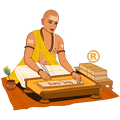























Sunrise06:46 AM
Sunset08:16 PM
Moonrise09:02 AM
Moonset11:38 PM
Shaka Samvat1937 Manmatha
Vikram Samvat2072 Kilaka
Gujarati Samvat2071 Parabhava
Amanta MonthVaishakha
Purnimanta MonthVaishakha
WeekdayMangalawara
PakshaShukla Paksha
TithiTritiya upto 07:36 AM
TithiChaturthi upto 06:19 AM, Apr 22
NakshatraRohini upto 01:45 AM, Apr 22
YogaSaubhagya upto 01:05 PM
KaranaGaraja upto 07:36 AM
KaranaVanija upto 06:52 PM
KaranaVishti upto 06:19 AM, Apr 22
Pravishte/Gate8
Rahu Kalam04:54 PM to 06:35 PM
Gulikai Kalam01:31 PM to 03:12 PM
Yamaganda10:08 AM to 11:50 AM
Abhijit01:04 PM to 01:58 PM
Dur Muhurtam09:28 AM to 10:22 AM
Dur Muhurtam12:28 AM, Apr 22 to 01:09 AM, Apr 22
Amrit Kalam10:39 PM to 12:12 AM, Apr 22
Varjyam05:59 PM to 07:32 PM
Notes: All timings are represented in 12-hour notation in local time of Columbus, United States with DST adjustment (if applicable).
Hours which are past midnight are suffixed with next day date. In Panchang day starts and ends with sunrise.


 Karka
Karka Pushya 23:15
Pushya 23:15

 Simha
Simha Magha 29:16+
Magha 29:16+

 Simha 15:08
Simha 15:08 P Phalguni 08:22
P Phalguni 08:22

 Kanya
Kanya U Phalguni 11:21
U Phalguni 11:21

 Tula
Tula Chitra 16:32
Chitra 16:32

 Tula
Tula Swati 18:35
Swati 18:35

 Vrishchika
Vrishchika Anuradha 21:22
Anuradha 21:22

 Vrishchika 22:00
Vrishchika 22:00 Jyeshtha 22:00
Jyeshtha 22:00

 Dhanu
Dhanu Mula 22:06
Mula 22:06

 Dhanu 27:29+
Dhanu 27:29+ P Ashadha 21:41
P Ashadha 21:41

 Makara
Makara U Ashadha 20:43
U Ashadha 20:43

 Makara 30:24+
Makara 30:24+ Shravana 19:17
Shravana 19:17

 Kumbha
Kumbha Dhanishtha 17:25
Dhanishtha 17:25

 Vrishabha
Vrishabha Rohini 25:45+
Rohini 25:45+

 Vrishabha 13:40
Vrishabha 13:40 Mrigashira 25:47+
Mrigashira 25:47+

 Mithuna
Mithuna Ardra 26:36+
Ardra 26:36+

 Karka
Karka Pushya 30:24+
Pushya 30:24+

 Karka 09:08
Karka 09:08 Ashlesha 09:08
Ashlesha 09:08

 Simha
Simha Magha 12:10
Magha 12:10

 Kanya
Kanya Hasta 20:58
Hasta 20:58In Hindu Calendar, the day starts with local sunrise and ends with next day local sunrise. As sunrise time is different for all cities, Hindu Calendar made for one city is not valid for any other city. Hence it is important to use location based Hindu Calendar, like this website. Further, each Hindu day consists of five elements, which are called angas. These five elements are -
In Hindu Calendar, all five elements together are called Panchang. (In Sanskrit: Panchang = Pancha (five) + Ang (part)). Hence Hindu Calendar which shows all five elements for each day is called Panchang. In South India Panchang is known as Panchangam.
When Hindu Calendar includes Muslims, Sikh, Christian, Buddhist and Jain festivals, including national holidays, it is called as Indian Calendar.